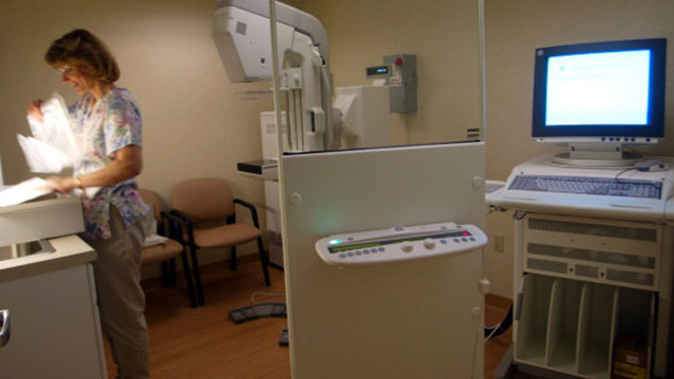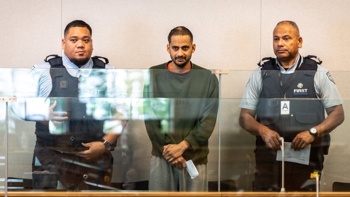

National Party leader Christopher Luxon says making cervical cancer screening free for all women “is something we will look at”.
Labour, the Green Party, NZ First and The Opportunities Party (TOP) have all pledged to fund free screening, a step expected to cost about $20 million a year.
Act opposes the spending, saying women are already able to seek out low or no-cost screening. National is undecided, a week before advance voting begins.
Campaigning in the Waikato today, Luxon told the Herald free cervical screening “is something we will look at”.
“We have a high set of priorities and it is a constant set of trade-offs, and we have to deliver the best outcomes for the biggest return for that investment.
“And so we will be looking at that as part of our health manifesto.”
Cervical screening is the only national screening programme that isn’t free. Most women make a “co-payment” to their GP or primary healthcare provider, which according to health officials can range from around $40 to $100.
A group of health experts, advocates and workers is pushing for cross-party agreement on a strategy to eliminate cervical cancer, including free screening.
That comes after a Herald investigation, published on Saturday, into the care of Pippa van Paauwe, a 39-year-old mother of two who developed Stage 4 cervical cancer after her smear tests were misread, in 2017 and again in 2020.
Her cancer may have been detected earlier had a shift to testing for high-risk human papillomavirus (HPV) not been repeatedly delayed. The better testing system was meant to begin in 2018, but began this month.
Professor Bev Lawton, founder and director of Victoria University’s Centre for Women’s Health Research - Te Tātai Hauora o Hine, told the Herald the change to HPV testing “became a political football”, which cost lives.
HPV testing must now be accompanied by an official strategy to eliminate cervical cancer, she said, including through lifting HPV vaccination rates and making screening free.
Lawton and others are pushing for cross-party agreement on these steps.
“We do not want this left in the political wilderness again,” she said. “It is too important.”
That’s backed by the Federation of Women’s Health Councils. Co-convenor Barbara Robson said the switch to HPV testing was an ideal time to make screening free for all women, and had been repeatedly recommended by Parliamentary reviews.
Currently, screening is free only for “priority” groups - women aged 30 and older and who haven’t been tested ever or in the previous five years, Māori, Pasifika, and community service card holders. (Asian women recently lost this entitlement.)
About 160 to 80 New Zealand women are diagnosed with cervical cancer each year, and around 50 die from it.
Three-year screening coverage is below the target of 80 per cent, at 68 per cent as of July. This drops for Māori (55 per cent), Pacific (54 per cent), and Asian (62 per cent).
Screening has been done by a speculum examination (smear test), which collects cells from the cervix that are then analysed in contracted laboratories.
Under the new HPV testing programme, women can do a vaginal swab themselves, at a health centre (a clinician will take the swab if preferred), or at home.
It is a better test, allowing the routine screening interval to be extended from three to five years.
Younger New Zealanders can also be protected from cervical and other cancers through HPV immunisation.
False-negative results will be much rarer under HPV testing, and the change is expected to prevent 25 cancer cases and 10 deaths every year.
The actual impact will be much bigger, because giving women the option to self-test with a vaginal swab is expected to greatly lift screening coverage.
Matt Hannant, Te Whatu Ora’s interim director of prevention for the national public health service, said an elimination strategy would be developed, but “the cost of screening is a major barrier to achieving the aims of the National Cervical Screening Programme”.
Everyone at Te Whatu Ora was “incredibly sorry” about what happened to Van Paauwe, he said, and new measures like the change to HPV testing and a continuous audit of cancer cases would help protect others.
Robson, of the Federation of Women’s Health Councils, said highlighting the limitations of the screening system “remains of the utmost importance”.
“When women become symptomatic - for example, with abnormal vaginal bleeding - they must be examined. The College of Obstetricians and Gynaecologists recommends that cervical cancer should be excluded in all participants with persistent abnormal vaginal bleeding.”
The law requires the cervical screening programme to be reviewed every three years, and the Health Minister appoints an expert panel to do so.
The latest report, published in May, recommended eliminating costs for all women by 2024, noting even priority groups are generally unaware they get free screening.
It highlighted “unacceptable inequities”, including for Māori women, who are 2.3 times more likely to die from cervical cancer.
“While there has been steady improvement in cervical cancer incidence and mortality rates since the programme’s inception [in 1990], the last few years have seen results plateau and in some areas even decline,” the report warned.
Nicholas Jones is an investigative reporter at the New Zealand Herald. He won the best individual investigation and best social issues reporter categories at the 2023 Voyager Media Awards.
Take your Radio, Podcasts and Music with you









